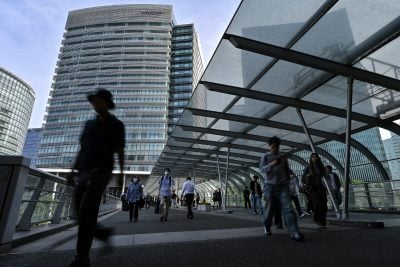If the post-Covid-19 economic recovery was an African dish, it would be the Senegalese white tiebou dieune or djollof rice with fish and vegetables. The Senegalese variation, the best of the classic West African dish, stands out with its sophisticated combination of delicately balanced ingredients and flavours.
Earlier this year, the African Union’s Committee of Fifteen Ministers of Finance met to discuss its “bounce back” strategy for the Covid-19 recovery. In my view, such a strategy must incorporate five key ingredients for success: economic integration, informal sector reform, gender equality, sustainable funding, and good governance. So let’s get into the kitchen!
Economic integration
First on the list is economic integration, which is essential to Africa’s economic resilience in the face of external challenges. Our continent fares poorly, with intra-African trade at 17% of Africa’s total trade, compared to the EU’s 60%. In the last African Regional Integration Index (ARII), integration was found to have actually decreased from 0.47 (on a scale of 0 to 1) in 2016 to 0.33 in 2019 – a trend that must be reversed.
The entry into force of the African Continental Free Trade Area (AfCFTA) in January 2021 signalled the determination of our leaders for greater regional integration and free-flowing trade.
However, traders need more than that. Political will must be paired with practical measures such as streamlining border processes, protecting women from harassment at borders, and cutting red tape, partly through digitalising customs procedures.
Countries must also improve both infrastructural and productive integration, which is crucial for developing value chains and enhancing overall economic integration across the continent.
Transforming the informal sector
The second ingredient, transforming the informal sector, involves increasing its productivity and reaching scale. This may require some counter-intuitive policymaking.
For too long, we have applied a top-down approach to the informal sector, neglecting the basic needs of the firms and entrepreneurs that account for up to 90% of our economies. This approach places too much emphasis on donors and public finance, and often reduces finance ministers to playing the role of accountant-general.
Instead, the policy approach to the informal sector must reflect its complex reality. This involves understanding the real economy of a country, knowing and having dialogues with its key players, addressing their needs, applying common sense, and delivering quality public services. Now more than ever, decision-makers are expected to efficiently and proactively manage public resources in order to improve the business climate significantly.
Gender equality
The third and most essential ingredient is gender equality. Women are Africa’s biggest untapped potential, yet they are underrepresented in all sectors at all levels. There is mounting evidence showing that reducing gender inequality could add up to $12trn to global growth. In my own Guinea, reducing it could boost our GDP per capita by more than 10% by 2035.
Despite this, gender inequality is still pervasive in our societies, our politics, and our economies. There are myriad impediments to women’s meaningful contributions to the economy, such as access to financing – the AfDB has estimated the gap in access to finance for women in businesses in Africa to be about $42bn.
We must take a holistic approach to tackling social and cultural norms, as well as other financial and legal impediments. Determined male decision-makers must also work alongside women to bring about change for stronger, more inclusive, and sustainable growth.
Sustainable funding
The fourth ingredient, sustainable funding, is critical for Covid-19 recovery and beyond. This involves increasing transparency across project funding, public procurement processes, debt policies, and management.
Such measures should be complemented by the strengthening of African financial institutions and the implementation of creative, long-term solutions. We must also channel more funding to these institutions, taking into account that 1,000 high net worth individuals in Africa hold $2trn in private capital.
We can also explore homegrown solutions that use all of our available levers, including debt. One possible avenue to explore is how financial resources held by informal sector players such as traders can be used as a policy tool: when I was Finance Minister, I explored how we could tap into informal funding for creative policy actions for private sector development. But just like foreign investors, our potential African investors need a better business climate and governance.
Governance
The final ingredient is governance. This may well be the magic ingredient at the chef’s disposal. In the latest Ibrahim Index of African Governance, released in 2020, the average African score for overall governance declined for the first time in over a decade.
We must transform the public sector to better serve citizens and economies by fighting corruption, accelerating the digital transformation agenda, and promoting civic participation.
In particular, digitalisation can help enhance evidence-based policymaking through improved data collection, analysis, and publication. Africa has made strides in terms of digitalisation as evidenced by the latest E-Government Development Index (EGDI), released in 2020, in which our score increased from 0.34 to 0.44 – just above the global average of 0.43. Digitalisation will improve our ability to own our narrative and influence perceptions that will ultimately help Africa attract more funding.
Together, these five key ingredients provide food for serious thought. Policymakers will be judged by their ability to skillfully combine them to create a post-Covid-19 economic recovery that will lay the foundations for a better future and prepare our continent for the global challenges ahead.
Malado Kaba is a global economist and served as the first female Minister of Economy and Finance of the Republic of Guinea (2016-2018). She is the Managing Director of Falémé Conseil and a member of the inaugural cohort of the Amujae Initiative, the flagship programme of the Ellen Johnson Sirleaf Presidential Center for Women and Development.
Want to continue reading? Subscribe today.
You've read all your free articles for this month! Subscribe now to enjoy full access to our content.
Digital Monthly
£8.00 / month
Receive full unlimited access to our articles, opinions, podcasts and more.
Digital Yearly
£70.00 / year
Our best value offer - save £26 and gain access to all of our digital content for an entire year!

 Sign in with Google
Sign in with Google 



